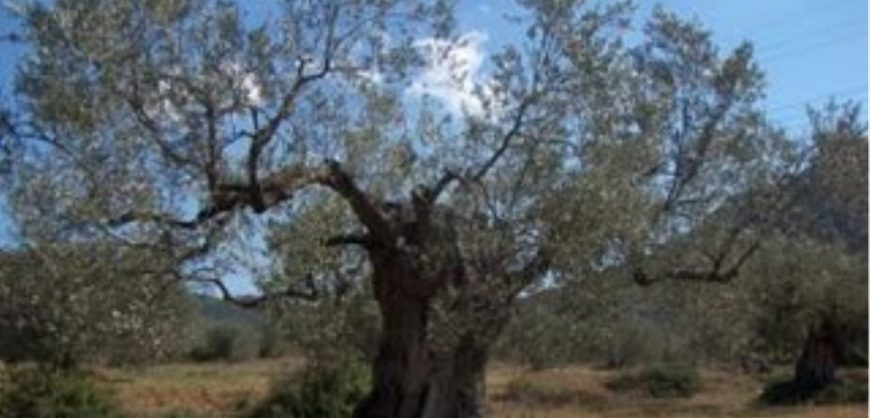Salah Abu Ali has three children. But he has another son here, he says, pointing towards the gnarled trunk of the Al Badawi tree. Weathered and ancient, it looks more like an oak than an olive tree, with muscular stalks and a cavernous trunk. Sensing confusion, Ali walks to the tree. He kneels below the branches and gently caresses a small sapling that’s sprouted near the base. He says he found it on the day his last son was born.
In the sleepy Palestinian village of Al Walaja, on the outskirts of Bethlehem, Ali wakes every morning to tend to his family’s orchard. Entering through a neighbor’s yard, he trots down the grove’s narrow paths in a way that belies his age, occasionally reaching down to quickly toss aside trespassing stones; briskly descending verdant terraces, one after another until he comes to the edge of the orchard. It is at this edge where Ali spends most of his day, pumping water from the spring above or tending to the soil. It is where he sometimes sleeps at night, and where he hosts people that have made the pilgrimage to the Holy Land. But many come for the tree, an olive that some believe to be the oldest in the world.
China and Turkey are the worst in journalists’ imprisonment (infographic)
The Al Badawi tree is one of a handful of olive trees in the eastern Mediterranean that are more than 2,000 years old. In 2010, two teams, one from Italy and another from Japan, carbon-dated Al Badawi. They came up with an age range of 3,000 to 5,500 years old. The top end of that spectrum would make the Al Badawi tree the oldest olive tree in the world, but it’s impossible to know for certain.
Read more: Atlas Obscura







































